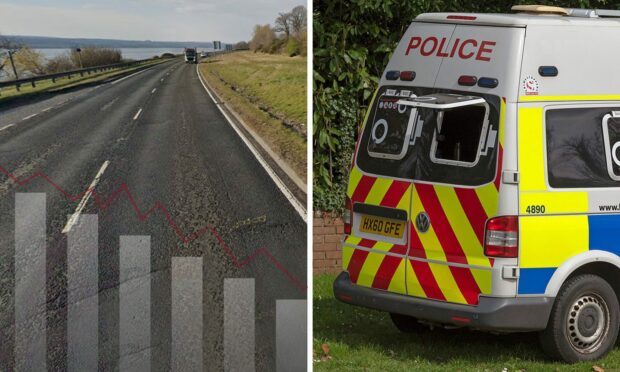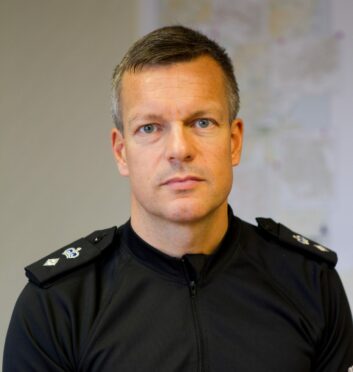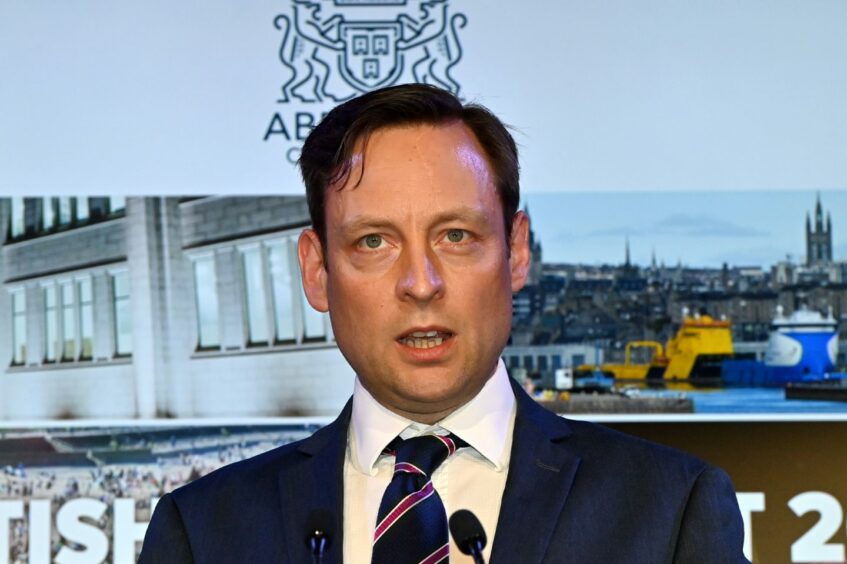The number of mobile speed cameras deployed on the A9 almost halved in 2022 – despite record deaths.
Police records show the numbers of mobile cameras deployed initially rose from 331 in 2020, to 448 in 2021.
But in 2022, they fell to a low of just 229 – almost half the number from the previous year.
Police say numbers before 2020 were deleted as part of their records retention
policy.
The number of officers in the dedicated national road policing unit has also fallen since numbers became available in 2017.
In 2017, there were 595 full-time officer equivalents, but by 2023 this had fallen to 526.
The figures were obtained by The Press and Journal via freedom of information laws.
However, police refused to disclose how many specialist road policing officers continue to be based at the Highland bases of Dingwall and Fort William incase criminals used the information.
These latest figures come after it was revealed in January the Highlands lost 45 local police officers in three years.
The cuts have been made despite the Perth to Inverness section of the A9 has recording 13 deaths in 2022 – its highest number in 20 years.
Along the full length of road, there were 17 deaths, 12 of which happened in the Highland region.
The casualties included a two-year-old and his grandparents south of Inverness in July.
But the high death toll combined with the reduction in mobile speed cameras and police units has caused concern among A9 safety campaigners.
Mobile cameras ‘needed in tourist season’
Laura Hansler, an organiser of the A9 dual action group, said: “The mobile units do help to a certain extent but people just inform others where the cameras are.
“I think in peak tourist season times the mobile cameras are needed and more mobile units should be used then.”
There have been concerns surrounding safety on the A9, which is Scotland’s longest road, for decades.
The SNP promised to dual the 112 mile route between Inverness and Perth when they came into power more than 15 years ago.
But only 30 miles has been dualled so far, with 80 miles still uncompleted.
Miss Hansler, from Kincraig near Kingussie, launched a petition to dual the A9 in November.
It reached over 3,000 signatures and is currently under consideration by the petitions committee.
Visibility of police on A9 ‘essential’
In the meantime, the A9 dual action group is focusing on improving safety standards on the road.
Miss Hansler said the drop in traffic police numbers was “concerning”.
“I think one thing has been noticed in recent years is the lack of marked cars on the road.
“I do think visibility of police on the road is essential and a unfortunately the A9 is a big big part of their job.
“The police are well aware of the campaign but officers hands are tied when they see budgets going elsewhere.”
Police say budget restrictions leave ‘hard choices’
In March, outgoing Chief Constable Sir Iain Livingstone said funding issues meant the police would not be able to maintain workforce levels.
Assistant Chief Constable Mark Williams said: “The chief constable made it clear following the Scottish Budget that hard choices lie ahead to deliver effective policing within the revenue allocation.
“The A9 continues to be a priority for us and has seen high levels of enforcement and police patrols over the past six months.
“Police Scotland is committed to improving road safety by continuing to educate road users, improve driver behaviour, carry out enforcement and work alongside our road safety partners.”
Drops shows A9 safety a ‘low priority’ for SNP
Scottish Conservative shadow transport secretary Liam Kerr said: “Evidence shows mobile cameras help to reduce traffic exceeding the speed limit on certain parts of the A9.
“So, at a time when deaths on the road have reached a 20-year high, it’s alarming and perplexing that less and less of these are being allocated to the A9.
“The SNP’s broken promises on dualling this death-trap trunk road is a shameful betrayal of people in northern Scotland who rely on this key route.
“While ministers continue to dither, more lives will be lost and now we have the car-hating Greens further delaying essential upgrades.
“To make matters worse, there has also been a shocking drop in the number of road policing officers which exposes just how low a priority safety on the A9 is to the SNP government.”
Transport Scotland declined to comment, and said decisions regarding police resources are made by Police Scotland.
In February, then Transport Secretary Jenny Gilruth announced the A9 would not be dualled by 2025. An updated timescale for completion will not be provided to parliament until autumn.






Conversation